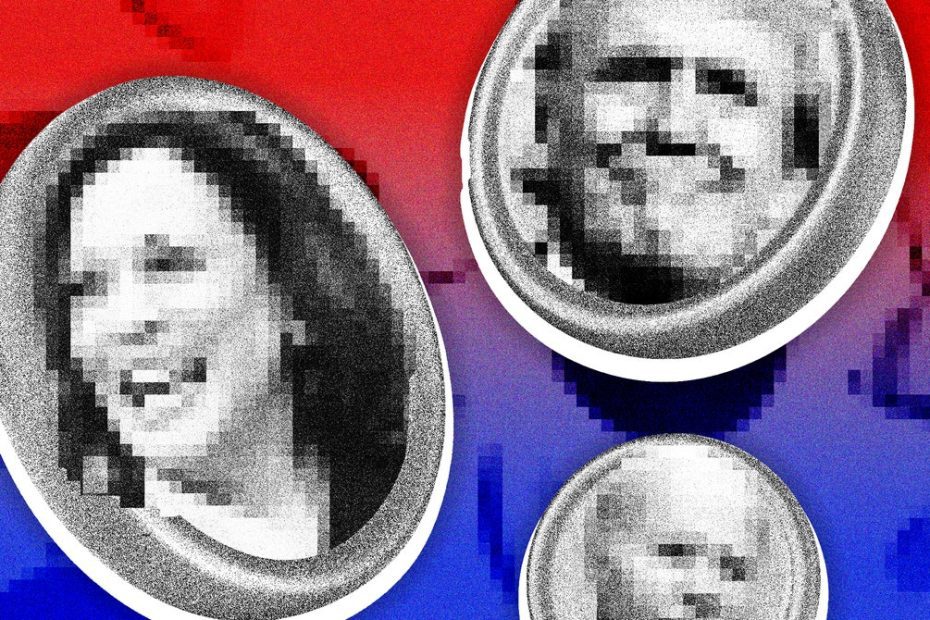On July 13, when news spread that a would-be assassin had narrowly missed Donald Trump at a rally in Butler, Pennsylvania, a trading frenzy began. Within an hour of the shooting, the price of TRUMP, a cryptocurrency inspired by the former president, had risen by more than a third, from $6.34 to $8.69. The memecoin was, in effect, a harbinger of the upcoming U.S. election.
Dozens of political meme coins have been created in the past year; there are also coins modeled after prominent politicians such as Joe Biden, Kamala Harris, Robert F. Kennedy Jr. and Alexandria Ocasio-Cortez. They share an iconography and naming convention: the politicians are typically represented by unflattering caricatures, and their names are deliberately misspelled (instead of Joe Biden, it’s “Jeo Boden”), in homage to an influential meme comic from the 2010s.
Outside of financial speculation, the coins serve no purpose and promise no utility. But during the U.S. presidential election campaign, their market performance has been correlated with the political fortunes of the people they depict.
Just as TRUMP’s price soared in the aftermath of the assassination attempt, an event that commentators had predicted would boost his re-election chances, the price of KAMA, the Harris-themed coin, more than tripled after Joe Biden announced his withdrawal from the race, clearing the way for the vice president to become the Democratic nominee. Similarly, the price of BODEN fell by half on June 27, the day of Biden’s disastrous CNN debate performance.
In the US, the Commodities and Futures Trading Commission (CFTC), a financial regulator, has refused to allow gambling platforms to offer bets on election outcomes. It is explicitly illegal under many states’ laws for residents to place such bets as well. But buying political memecoins has become a loose proxy—one that, thanks to the wild price swings typical of crypto markets, comes with both increased risk and potential reward. In total, hundreds of millions of dollars’ worth of political memecoins currently change hands every day.
“Investing in a political memecoin is not an endorsement or an endorsement,” said Rennick Palley, founder of investment firm Stratos, whose hedge fund holds memecoins. “Most people see it as a fun way to bet on what’s going to happen. If I wanted to speculate on who’s going to win, memecoins are clearly the way to do that for maximum risk and maximum upside.”
The debate over whether to legalize election betting in the U.S. goes back decades, but is currently playing out in the U.S. legal system. In September, the CFTC denied an application by Kalshi, a New York-based company that operates a market for betting on the outcome of events, to let customers bet on which party would control both houses of Congress, which the regulator described as “contrary to the public interest.”

